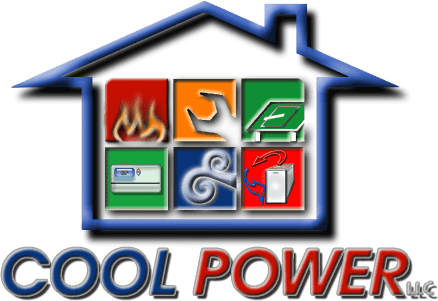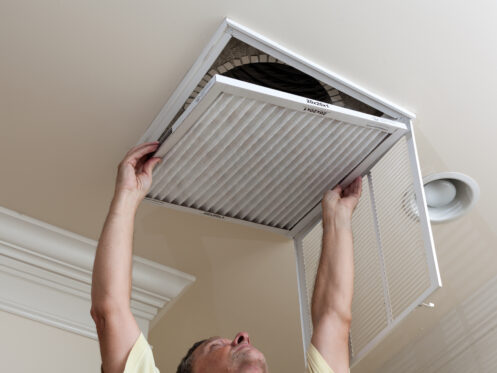The pollen season in Ronkonkoma, NY typically lasts from April to August. These months are incredibly challenging for those with allergies. However, due to mold, pet dander, and dust mites, many locals suffer year-round. No matter what triggers sniffling, sneezing, and swollen, irritated eyes in your household, it’s important to have a mitigation strategy. Although your HVAC air filter can help, it might not be enough to protect allergy sufferers on its own. Read on to find out what your HVAC air filter can and cannot do when it comes to reducing allergies.
Understanding the Role of HVAC Air Filters
HVAC equipment manufacturers include air filters in their product designs as a means for protecting their equipment. Contrary to what many consumers believe, the primary role of HVAC air filters is to keep dust, lint, hair, and other large-sized debris out of heaters and air conditioners. Without filters, sensitive components like evaporator coils, air intake valves, flame sensors, and thermocouples would quickly become coated with or infiltrated by airborne particulates.
Although the indoor air quality (IAQ) benefits provided by air filters are secondary to their HVAC protection, they’re still important. With a clean filter in, running your heater, heat pump, or air conditioner should increasingly limit the amount of allergens floating around your home.
HVAC Air Filter Ratings and Overall Filter Effectiveness
Not all HVAC air filters are equal in performance and capabilities. Many new air handling units come with standard air filters pre-installed. These relatively low-cost components have limited surface area, slim profiles, and fairly large filter mesh. Dangerous pathogens pass right through them. Volatile organic compounds (VOCs) and other gaseous chemicals do, too. Standard HVAC air filters aren’t the best choice for allergy sufferers. These basic components cannot collect and retain mold, dust mites, or pet dander. Some even fail to capture all pollen.
Every air filter sold throughout the United States receives a maximum efficiency reporting value (MERV) rating. You can find MERV ratings listed on filter packaging and on filters themselves. The MERV rating system runs from one through 20, with 20 being the highest possible MERV rating and one being the lowest. For residential use, standard HVAC air filters usually have MERV ratings of six to eight. Although homeowners can always upgrade these components, filters with MERV ratings of 14 or higher often require professional HVAC system modifications.
Will Upgrading My Air Filter Reduce Indoor Allergens?
Given that standard HVAC air filters don’t collect and retain mold, dander, or dust mites, you’ll need to upgrade your air filter to one that can capably extract common allergens. Upgrading to a filter with just a slightly higher MERV rating could make a noticeable difference. For instance, installing an air filter with a MERV rating of 10 to 12 will greatly reduce concentrations of these and other contaminants.
By implementing additional IAQ improvement strategies, you might find that allergy sufferers manage to remain symptom-free most of the time. Simple measures like grooming pets often and outdoors, treating mold problems, and balancing humidity are all effective ways to support and enhance the benefits of an HVAC air filter. More often than not, the healthiest and most effective allergy prevention plans are multi-pronged.
The Drawbacks of Increasing Your Air Filter’s MERV Rating
HVAC air filter upgrades can sometimes cause performance issues. Higher-rated air filters have thicker, denser mesh and greater surface area overall. Not only do allergens have a much harder time passing through these components, but incoming air struggles to move through them as well. The surest way to make these improvements without subjecting your heater or AC to undue stress is with the help of experienced HVAC technicians.
What HVAC Air Filters Cannot Do
For most households with allergy sufferers, even upgraded HVAC air filters won’t eliminate all airborne allergens. New pollen, dander, mold, and other contaminants enter building interiors each time people open windows or doors or walk across indoor flooring. Moreover, clean, high-rated, and properly installed HVAC air filters don’t negate the need for diligent HVAC maintenance. If you aren’t scheduling regular heater and AC tune-ups, all of the filters and filter changes in the world won’t help your household remain allergy-free.
It’s also important to note that when people with allergies constantly suffer indoors, there’s usually an underlying, fixable problem. For instance, your living space might be overly humid and mold-prone due to slow or hidden plumbing leaks. You might have an abundance of dust and dust mites in your home because your indoor air is too dry. When ongoing IAQ issues exist, few things will trump the IAQ benefits of resolving them.
Exploring Popular IAQ Improvements for Allergy Sufferers
Integrated HVAC system accessories are secondary HVAC units that support heaters and air conditioners in humidity control or contaminant removal. These units are installed directly in central HVAC ductwork or attached to it.
Whole-House Air Purifiers
Whole-house air purifiers are excellent HVAC accessories for many allergy sufferers. These units purify conditioned air before it’s distributed. Air purifiers use built-in technologies like UV lights, ionizers, and high-efficiency particulate air (HEPA) filters to deactivate viruses, bacteria, and mold, neutralize chemical contaminants, and pick up micro-fine particulates that pass through standard air filters.
Air Scrubbers
Air scrubbers work much like whole-house air purifiers. Also installed in or attached to central ductwork, these appliances filter conditioned air and release sanitizing solutions. These solutions enter living spaces via HVAC air vents to weigh dust particles and other debris down. They also neutralize indoor contaminants and eradicate surface germs. Air scrubbers might be best for your home if any allergy sufferers have compromised immunity and frequently fall ill during allergy season. Air scrubbers are also a top choice for households waging ongoing battles with mold.
Sanitizing UV Lights
In HVAC systems with integrated, sanitizing UV lights, conditioned air passes beneath these features before exiting out of air vents. These lights render pathogens unable to produce by disrupting their production of essential proteins. UV light exposure also dramatically shortens the lifespans and viability of mold spores, viruses, and bacteria.
Whole-House Humidification and Dehumidification Equipment
The allergy sufferers in your home may benefit from a whole-house humidifier or dehumidifier if imbalanced humidity lies at the heart of your current IAQ concerns. While the EPA recommends maintaining indoor humidity between just 30% and 50%, targeting 40% to 60% often proves more feasible. Indoor moisture weighs many allergens down. When weighted with enough moisture, dust, dust mites, and dander settle on surfaces like countertops and floors where they can be mopped up or wiped away.
However, when indoor moisture rises above 60%, mold and dust mites flourish. Integrated humidification and dehumidification equipment monitor indoor moisture and add or subtract it as needed.
How to Know Which Allergens Are Present in Your Home
Indoor air quality testing is a great way to learn which allergens you’re dealing with and which filter improvements or integrated HVAC accessories might work best. In addition to listing the concentrations of all allergens, pathogens, and gaseous chemicals present, an IAQ test will also list your home’s humidity.
Optimizing HVAC Air Filter Performance
Whether you need integrated HVAC accessories or leak repairs to improve your home’s IAQ, it’s always important to keep your HVAC air filter cleaner. Although air filters aren’t always sufficient on their own for keeping allergy sufferers protected, they lie at the heart of every effective IAQ improvement plan.
We can help you find the perfect filter rating and filter for the allergy sufferers in your Ronkonkoma, NY home. We can also help you explore the many benefits of top IAQ technologies. We offer expert furnace and air conditioner installation, maintenance, and repair services. We also provide heat pumps, boilers, and ductless HVAC. To find out about our preventative maintenance plan or schedule an appointment, contact Cool Power LLC now.


